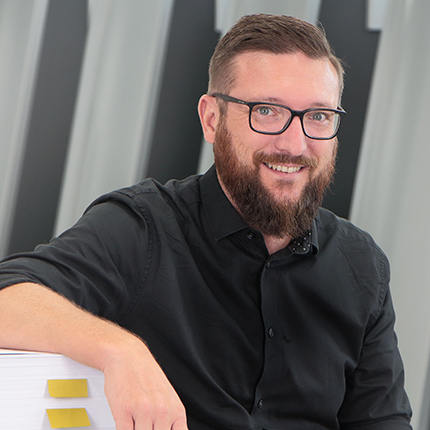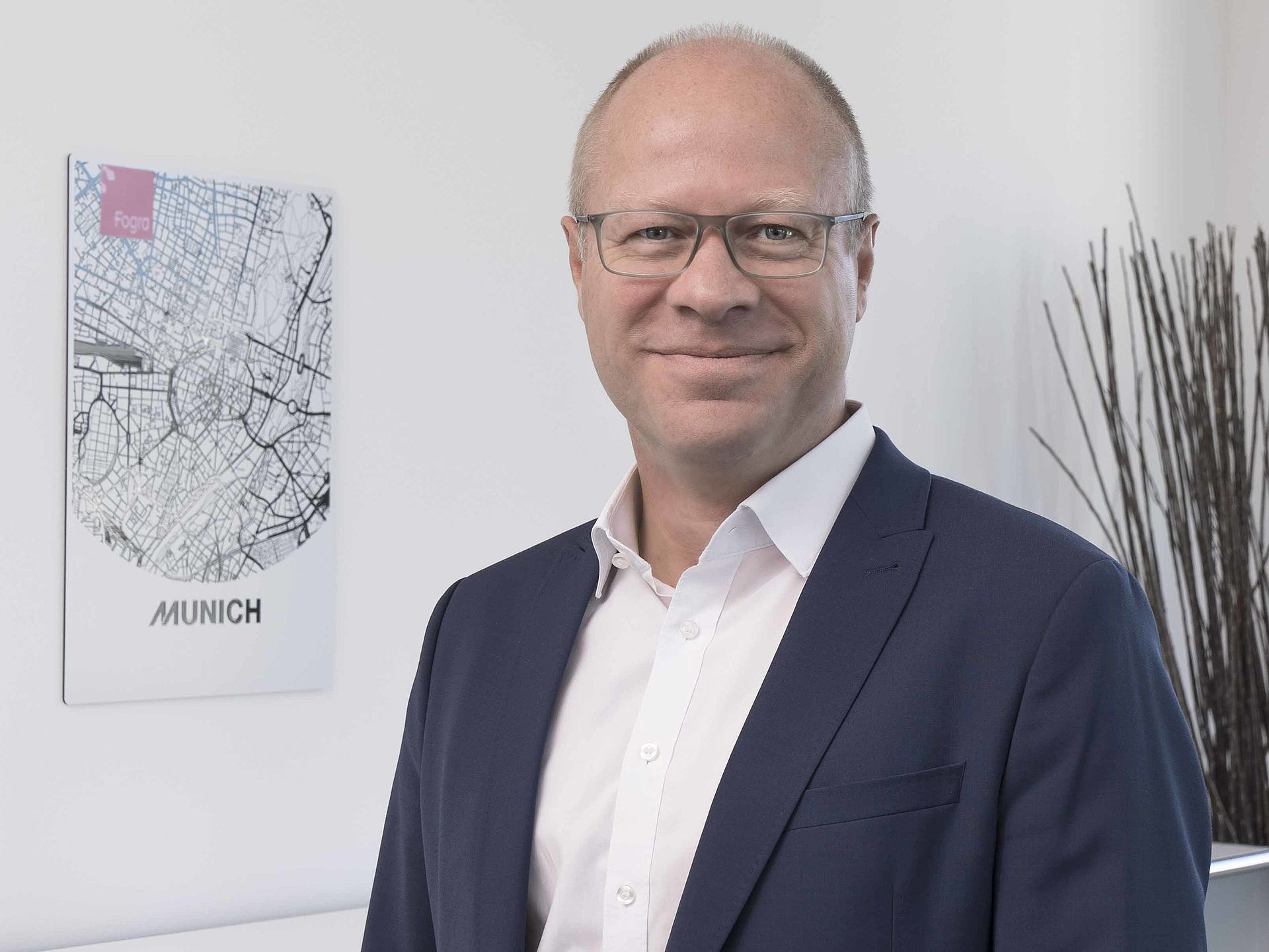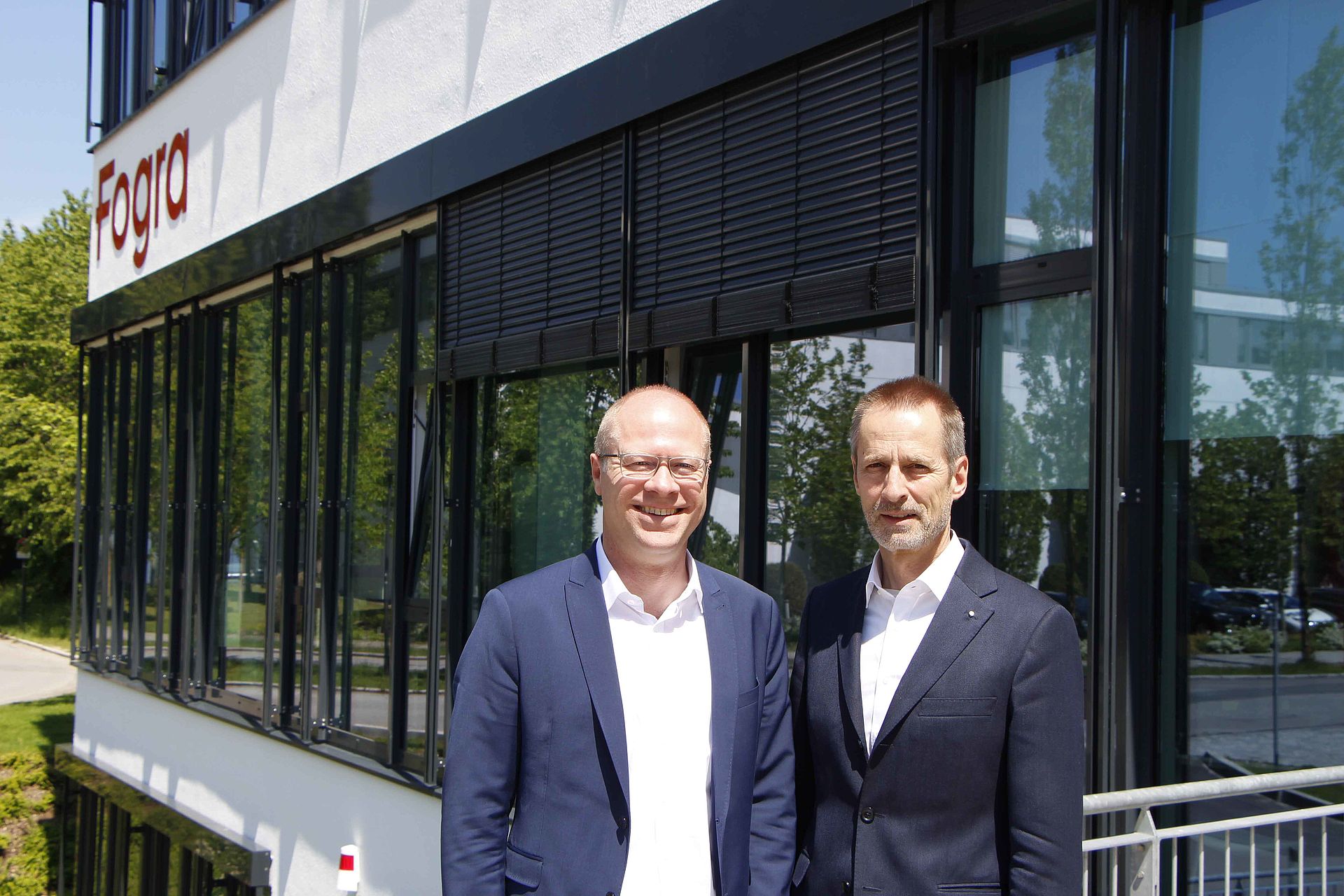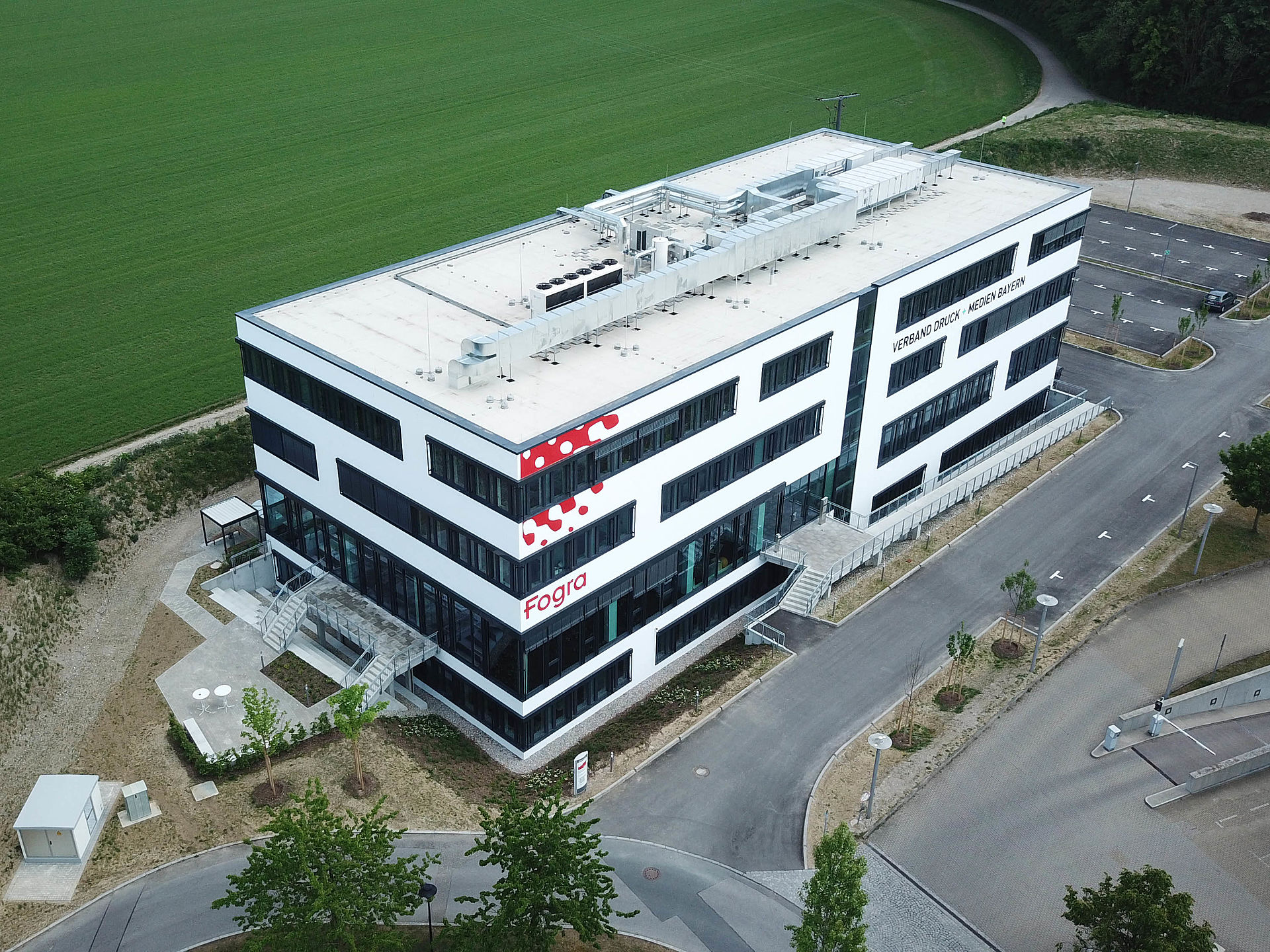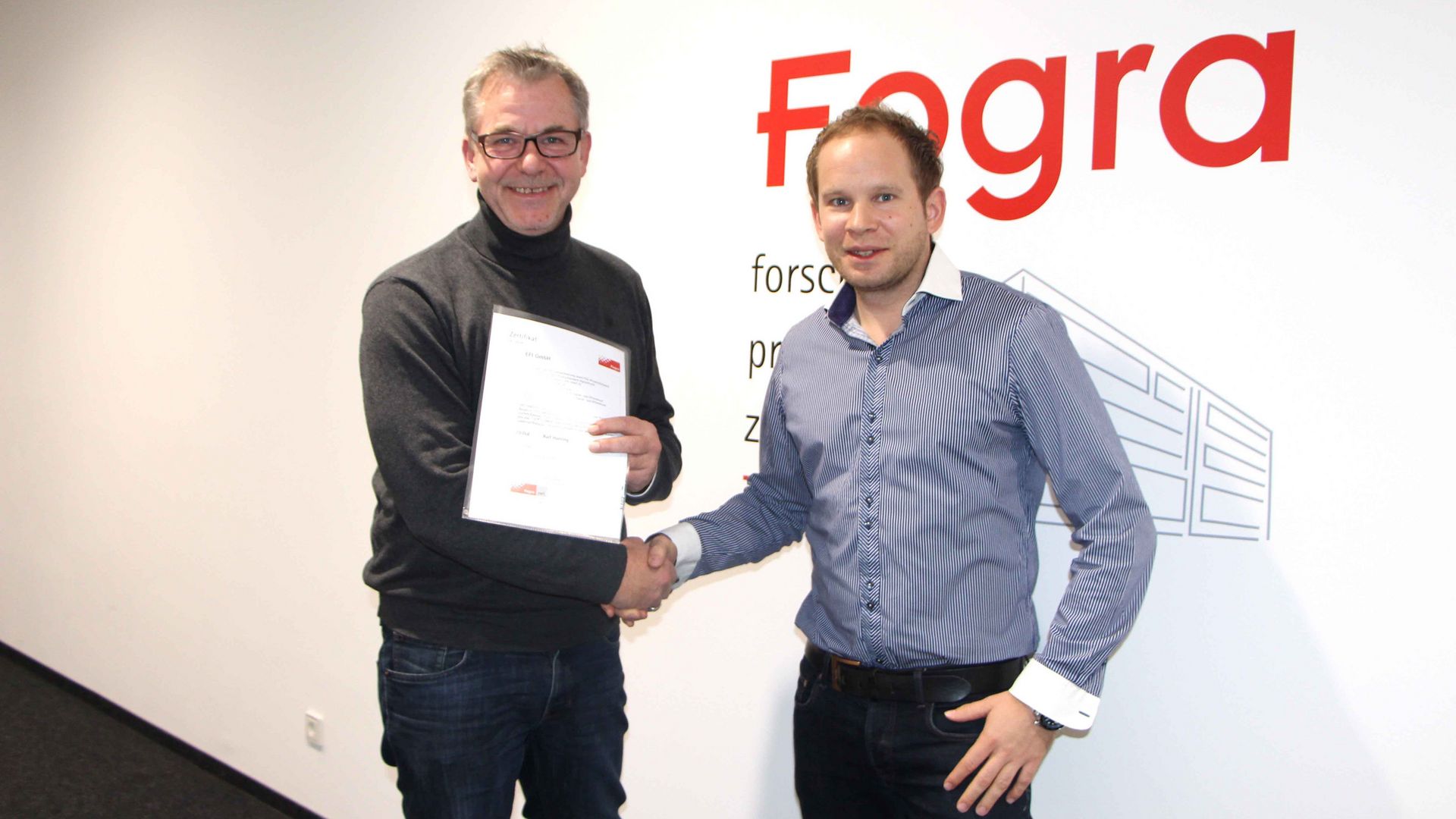Topic of your interest
Dr Neufeld, you joined Fogra in 2006. Can you still remember what it was like back then?
Dr Eduard Neufeld: Of course, as if it was yesterday. I shadowed my predecessor for six weeks and had to take on board everything I needed to know from him very quickly. However, it was also clear to me that I wanted to break new ground. In my first address at an AGM I argued that we would only achieve lasting strength if we actively embraced the constant change whilst at the same time maintaining our position as a fixed point of reference by preserving our neutrality, integrity and scientific authority.
What did you do back then?
Right back at the outset I personally set myself three long-term goals and strove to take the entire workforce along with me. The first was to make Fogra, which was then a largely German institute, international. The second was that in an industry that was consolidating rapidly it was of fundamental importance to diversify our research topics and testing services but to do so in the right way. And thirdly, I informed the Executive Committee that I did not want to extend the lease for our building, which still had 10 years to run at that time.
And have you achieved your goals?
One never achieves everything but the current achievements of the Fogra team make me really proud. Today we have around 900 members in 50 different countries and our staff speak almost 10 different mother tongues. We have massively expanded our security applications activities and we only needed to extend our lease by six months.
The institute’s new home represents a giant stride forward, does it not?
Without question. At last, we have new, functional and modern laboratory facilities that equip us for all current and future tasks. I cannot conceal the fact that such a project was a real challenge. So, for example, our drywaller went into receivership three months before we were due to move in and just six weeks before the move we found that the jointless floor in the press hall had been badly laid and had to be taken up in short order. Despite all these adventures we were able to complete the institute’s new home within the original budget and with just minor delays. That was a weight off my mind.
You are the fourth institute director since Fogra was founded in 1951. Is such resilience and longevity a feature in other areas of Fogra?
Absolutely. We have put down a marker, to outsiders as well as insiders, as a rock in the maelstrom of the printing and media industry. Many members and customers have worked with us for decades, and in some cases from our early years. Naturally, this only works because our staff identify with Fogra. Do you know that when I joined Fogra in 2006 at the age of 36 I found myself talking to a colleague who had worked for Fogra longer than I had been alive and he was still full of enthusiasm. I was in awe of that and I have really sought to maintain such identification with the institute.
What do you think really sets Fogra apart today?
A passionate and expert team working in ultra-modern laboratories that focuses on our members at all times. That said, we love diversity because we want to learn from each other: the experienced and the young, female (we want more) and male colleagues with different life histories.
The industry is undergoing technological change in a way that almost no other is. How is Fogra moving forward in this changing market and how can you support your members and customers?
Through close dialogue with our members, on the technical committees for example, we know where the shoe is pinching and we are able to target new topics at a very early stage. Companies that want to be in the forefront are warmly invited to work with us on research projects. Subsequently, the results are shared with all members. We want to do things our way and to be not just a rock in the maelstrom, as I put it above, but above all to be a beacon in an age of technological change.
What other developments do you think will be important over the coming years?
Some developments, such as the ongoing digitization of processes and the integration of some AI-based methods, are affecting all companies without exception. I can only urge anyone who doesn’t yet feel comfortable with such themes to reach out to us and to draw on our expertise. That aside, there are of course numerous trends in specific areas that there isn’t the space to cover here. I would point you in the direction of our symposia, all of which focus on technological developments.
Do you have an example of this?
Indeed, what about the media wedges for MultiColor or 3D printing that Fogra launched in 2018 and 2019? They are the result of intensive research and should allow any company involved in these fields to sign legally watertight contracts with its customers because colour correctness can be objectively checked.
You talked above about Fogra having members from 50 countries and customers from all over the world. How do you manage to stay in touch and above all to guarantee the transfer of knowledge to everyone, no matter how far away or whatever language they might speak?
Internationally, we work with a series of trusted partners who are responsible for the direct contact locally and who speak the relevant language perfectly. Of course, on top of this, we are fully exploiting all the options that the digitization of communications gives us through initiatives such as the Fogra Web Academy.
What goal have you set for Fogra for the next few years?
We want every member to feel more than ever that they are the centre of our attention. We want to forge closer contacts with customers and members, whether it be through personal visits and telephone calls or targeted digital information on the Internet or via social media. When it comes to technology, we want to continue to develop solutions for industry that are fit for the future, to be a reliable partner—in short to be looked to as a beacon for technological developments.
On a personal note, is Fogra the centre of your universe or do you also have a life outside the institute?
Haha, of course I enjoy my free time too. I’m blissfully happy when I’m walking in the mountains with my family or playing electric guitar in my jazz/rock band.
Dr Neufeld, thank you very much for the Interview.
